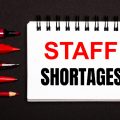
Do you feel you have received the right support and training to work with fathers?
- No (77%, 432 Votes)
- Yes (23%, 129 Votes)
Total Voters: 561
The number of social workers employed by Scottish councils increased last year, official figures have shown.
At the end of 2023, authorities were employing a record 6,427 practitioners, up 2.5% on the year before (6,271), according to the Scottish Social Services Council’s (SSSC) annual data report on the country’s social care workforce.
On a full-time equivalent basis, the workforce grew by 2.9% from 5,716 to 5,880, a faster pace of growth than from 2021-22 (0.9%). The figures do not include practitioners working in adults’ services in Highland, who are employed by the NHS.
As in previous years, children’s social workers accounted for the greatest share of council-employed practitioners, though their recorded number fell from 2,774 to 2,720 year on year. Authorities employed 2,236 adults’ practitioners as of the end of last year, up from 2,156 the year before, while the number of generic practitioners fell from 391 to 297.
The SSSC reported a particularly sharp rise in the number of criminal justice social workers from 2022-23, from 950 to 1,174. However, the regulator told Community Care that this appeared to be caused by two authorities having changed their categorisation of some of the social workers they employed compared with previous years.
“We’ll check that categorisation as part of our current data collection on social workers and social worker vacancies, which we’re next due to report in November,” a spokesperson for the regulator said.
As in previous years, council practitioners accounted for about 60% of registered social workers in Scotland, whose numbers grew from 10,830 to 10,919 in the year to March 2024, according to separate SSSC data.
Meanwhile, the regulator also reported that the number of mental health officers (MHOs). employed by authorities has also grown, from 670 to 697 (4%) in 2022-23. MHOs are specialist social workers who assess people who are mentally unwell and who may need compulsory care.
The overall number of hours estimated to be spent on MHO duties each week in 2023 was 13,149, the highest since the SSSC started reporting this figure in 2016, and up from 12,752 in 2022.
However, despite this, councils reported an increasing shortage of MHO capacity, with an 11.8% rise, from 2,606 to 2,914, in the shortfall in mental health officer hours from 2022-23.
SSSC chief executive Maree Allison said: ”I’m pleased to see the number of active MHO posts and the number of people filling them both increased during 2023. However, we need to balance this against the reported shortfall in MHO duties increasing by 11.8% to 2,914 hours, which is higher than the previous two years.”





 Bournemouth, Christchurch and Poole
Bournemouth, Christchurch and Poole  Hampshire County Council
Hampshire County Council  Lincolnshire County Council
Lincolnshire County Council  Norfolk County Council
Norfolk County Council  Northamptonshire Children’s Trust
Northamptonshire Children’s Trust  South Gloucestershire Council
South Gloucestershire Council  Wiltshire Council
Wiltshire Council  Wokingham Borough Council
Wokingham Borough Council  Children and young people with SEND are ‘valued and prioritised’ in Wiltshire, find inspectors
Children and young people with SEND are ‘valued and prioritised’ in Wiltshire, find inspectors  How specialist refugee teams benefit young people and social workers
How specialist refugee teams benefit young people and social workers  Podcast: returning to social work after becoming a first-time parent
Podcast: returning to social work after becoming a first-time parent  Podcast: would you work for an inadequate-rated service?
Podcast: would you work for an inadequate-rated service?  Family help: one local authority’s experience of the model
Family help: one local authority’s experience of the model  Workforce Insights – showcasing a selection of the sector’s top recruiters
Workforce Insights – showcasing a selection of the sector’s top recruiters 

 Facebook
Facebook X
X LinkedIn
LinkedIn Instagram
Instagram
Comments are closed.